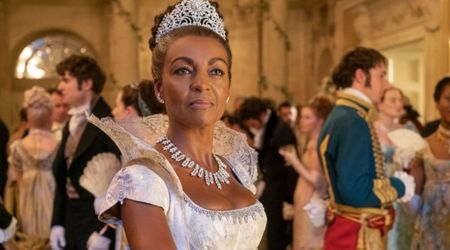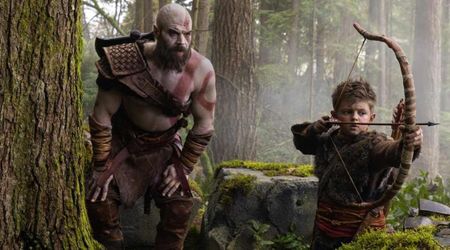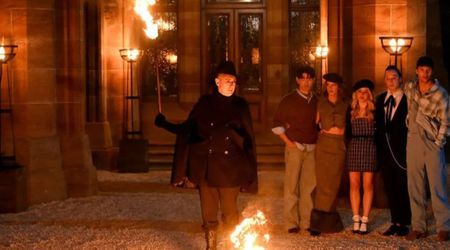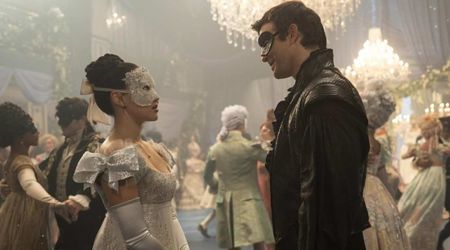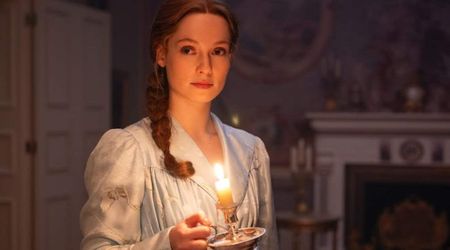'Noughts + Crosses' Review: Miniseries scores on Afrocentric world-building but character arcs are a letdown

'Noughts + Crosses' will make you uncomfortable -- there is no getting away from that, given the premise. In a world turned on its head, "Aprica" is the center of the world's wealth, influence, and power and "Albion", comprising Britain and Ireland, is Aprica's remote colonial outpost.
While it still answers to the Aprican Empire, this "colony" has the Crosses (Blacks) in-charge wielding the cultural, economic, and social clout of the ruling, dominant class, while the "native" Noughts (Whites) struggle under the oppressive colonial government. Segregation laws are in effect and relationships between Noughts and Crosses are illegal.
The devil is in the details as they say, and there is plenty of good world-building in 'Noughts + Crosses' that show us the textures of what a society like that would look and feel like. From beauty standards in advertising being Black-centric, to how mainstream music, fashion, and architecture embrace Afro-futurism concepts, to how the Noughts adopt "Aprican" prints, patterns, and hairstyles to fit into mainstream standards of beauty and fashion.
It also comes across in subtler ways -- in the way Sephy Hadley exercises her privilege in the hospital and her logic behind a series of infuriating choices that lead Callum McGregor to call her a "tourist". Or even how mainstream news "spins" commonplace police brutality, or how Ryan McGregor's murder in prison (assisted by guards) is covered up as a suicide.
The race flipping is further explored in day-to-day interactions like how the McGregors have to use a separate entrance with a metal detector, unlike the Hadleys, or how the color of the common plaster in a medical kit is not pink but dark brown. You flinch at the casual racism of Jasmine Hadley when she tells Meggie McGregor, her Nought housekeeper, that with the weather being so nice, even Meggie can "get some color".
But despite all that it gets right, there are also some slips. For instance, the "McGregors" probably wouldn't have a surname like that and instead would either have a "made up" surname or have a Apricanized surname that would make it easier for the Crosses to pronounce.
Alt-history is an exercise in speculative what-ifs. Usually, it is applied to White male preoccupations like WWII and Hitler. We have also had graphic novels ('Y: The Last Man') and films ('I Am Not an Easy Man' or 'Jacky in the Kingdom of Women') about gender norms being upended with the male protagonist becoming the oppressed one in a matriarchal society. Most of these "experiments" have had mixed results, depending on the nuance and world-building.
'Noughts + Crosses' comes in with an advantage. It is based on an extremely well-written and realized source material by British author Malorie Blackman. That it tackles the particularly thorny mess of race relations, in this current time in history, feels earned. It's crucial for Black men and women to understand what power might feel or look like -- something they have never really experienced in the current world hierarchy of "developed" and "developing" nations, with the history of apartheid, slave trading and colonization behind them.
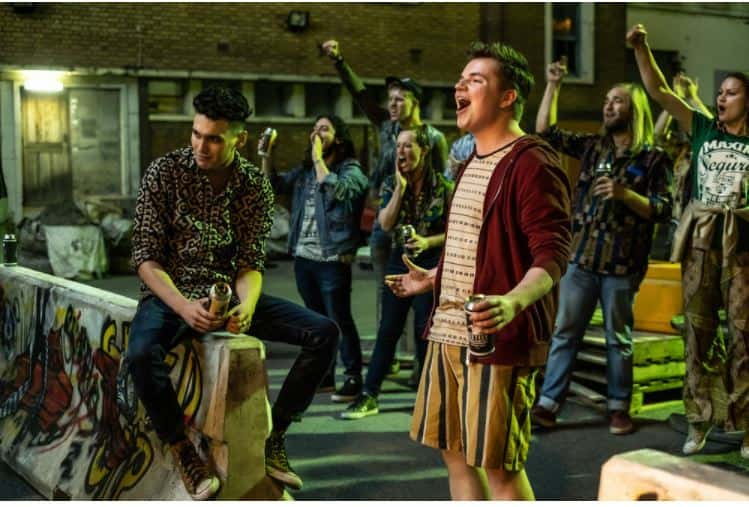
This was the appeal of 'Black Panther' with its Afro-futurism and Wakandian technological superiority. It is a perspective that Bong Joon-ho had when he said that the Oscars were “very local” when asked if he thought it odd no South Korean film has ever been nominated for an Oscar before. For the Euro-centric Global North, Hollywood and the Oscars are the center, while South Korea, despite its booming cultural industries is the periphery. But Bong Joon-ho, who has never faced any barriers to his genius within his own society, has a swagger that POCs in the US don't quite have. By flipping only race relations but keeping other things on familiar ground -- from patriarchy to class -- the show creates a believable, nuanced world that holds your interest in the first few episodes. It also gives its White audience to walk a mile in someone else's shoes, so to speak.
But then the weakness of this series takes over, especially in the later episodes, after you have got used to this world. Sephy's naivete makes her decidedly unlikeable at times -- which is the point, in a way, since the show portrays how privilege blinds. But the script doesn't support her the way it supports Callum and his radicalization -- which is equally 'naive' in some ways. The development of the central love story also takes a backseat because the political machinations engage all the attention and action. You also have the divisive character of Nought extremist Jack Dorn, leader of the Liberation Militia, who is possibly as bad as segregationist Kamal Hadley in the way he manipulates events on the show.
Some arcs like the subplot involving Kamal's illegitimate son, Yaro Hadley, goes nowhere and the resolution of others feels unearned, like Kamal simply giving up and letting Callum leave with Sephy in the show's finale. But despite its rough edges, the series is worth a watch.
'Noughts and Crosses' premiered on Peacock on September 4 and is available to stream.

